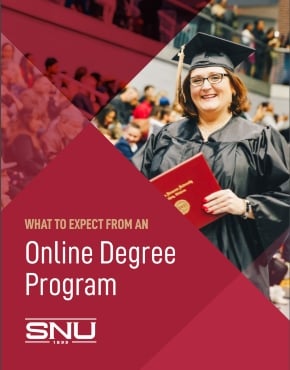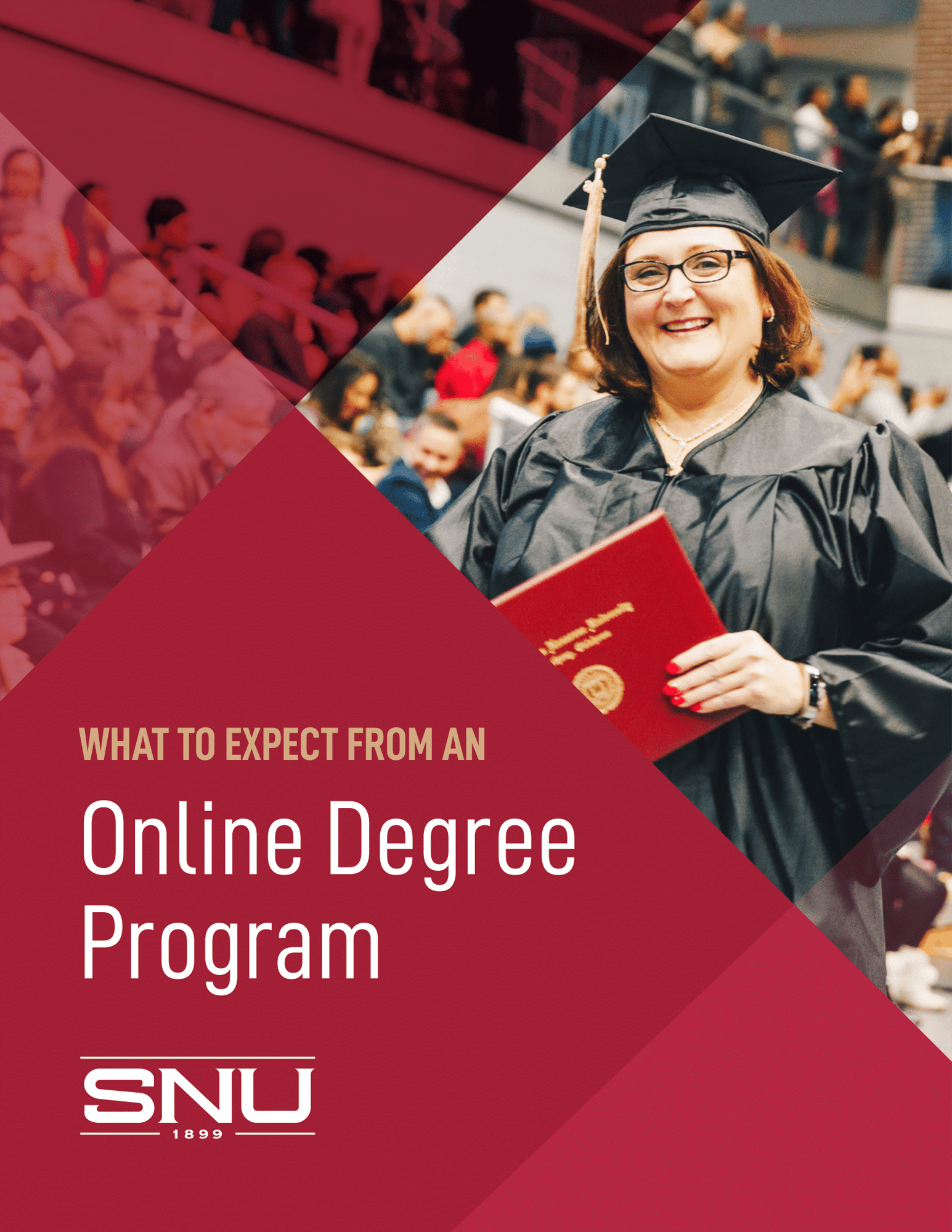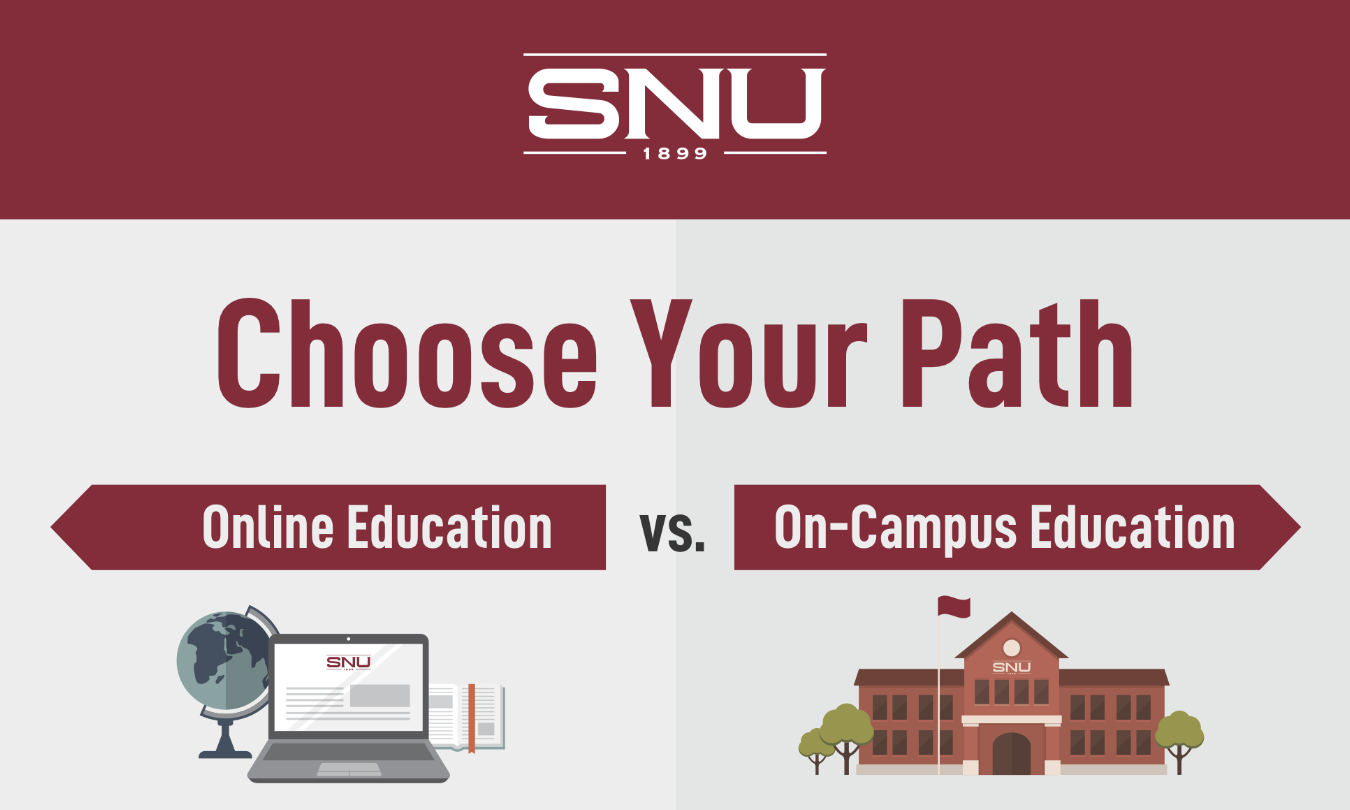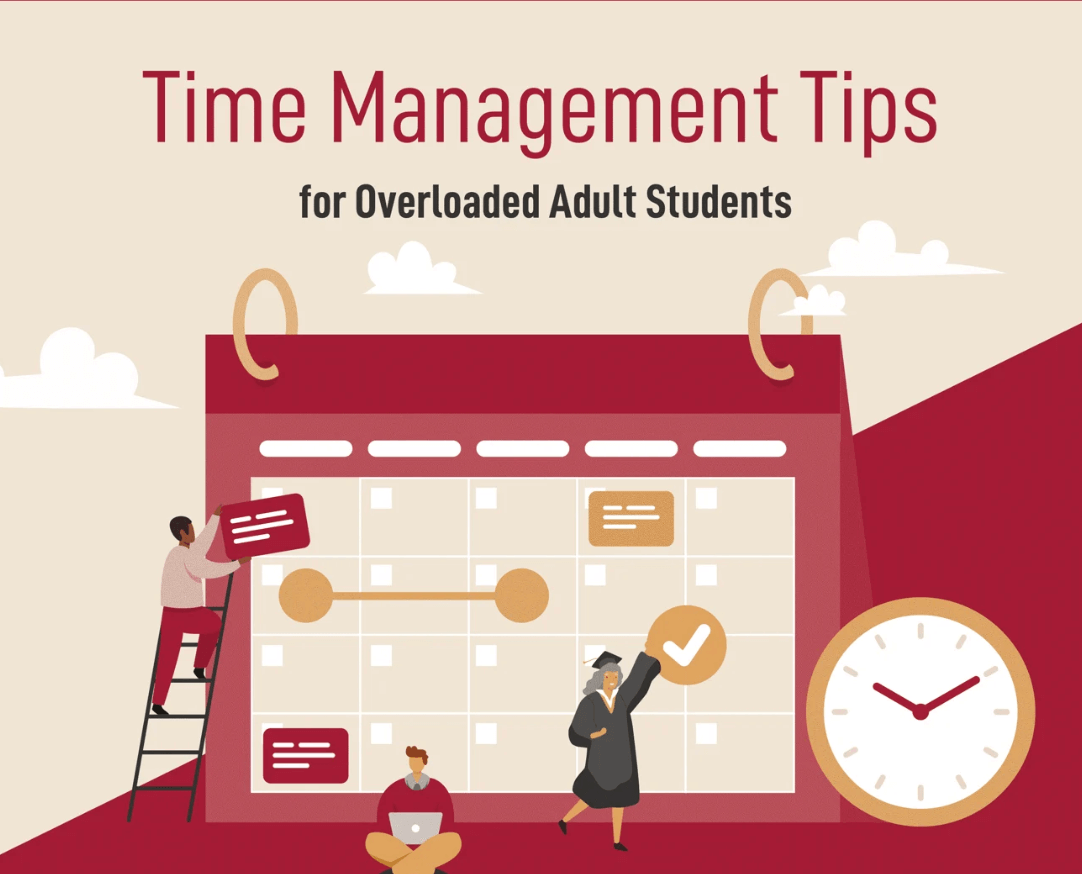-
Programs
Not Sure Where to Start?
- Associate Programs & Certificates
- General Studies
- Associate of Arts in Business
- Physical Therapist Assistant
- Professional Services & Certificates
- Special Education Bootcamp
- View All
- Undergraduate Programs
- Business Administration
- Criminal Justice
- Cybersecurity
- Education
- Family Studies and Gerontology
- Healthcare Administration
- Organizational Leadership
- Accelerated General Education
- View All
- Graduate & Doctorate Programs
- Doctorate of Education in Administration & Leadership
- M.A. Administration of Special Ed.
- M.A. Applied Psychology
- M.A. Educational Leadership
- M.A. Sports Management & Administration
- M.A. Teaching
- MBA, 12- 18 months
- MBA - Healthcare Administration
- Master of Organizational Leadership
- M.S. Counseling Psychology
- M.S. Exercise Science - Health & Human Performance
- M.S. Exercise Science - Wellness
- M.S. Instructional Design Technology
- M.S. Management
- M.S. Physician Assistant
- Alternative Certification (Teaching or Special Ed.)
- View All
- Resources
- Tuition & Aid
- Military
%20(1)-1.jpg?width=1200&height=800&name=medium%20(1)%20(1)-1.jpg)
Introduction
Whether you’re a college first-timer or you’re returning to achieve the dreams you never quite reached, results are important. Age and experience mean you understand the financial realities of living independently, as well as the challenges of navigating a career without the right education. You may wonder if an online degree program can equip you with the skills you need. Here’s what you need to know as you weigh your options and sign up for a new path to the life you deserve.
Download a PDF version of this guide by filling out this form, or keep scrolling to learn more.

Chapters
The Facts on Online Adult Education
Why Adults Pursue Online Education
What to Expect from Online Adult Education
Online College vs. Traditional College: Pros and Cons
Common Misconceptions About Online Adult Education
How to be Successful as an Online College Student
Conclusion

The Facts on Online Adult Education
Between 2001 and 2015, the number of adults returning to school increased 35 percent. The National Center for Education Statistics estimates that the number will climb an additional 11 percent by 2026. In the fall of 2019, 7.4 million students over the age of 25 went back to school.
Online adult education offers incredible opportunities to students, all in a flexible learning environment that’s adaptable to the demands of people with careers, families, and endless obligations.
"I chose to attend class online due to my busy work and personal schedules. I knew that with my teenage daughter it would be hard to carve out one night a week to attend class, so online classes were a much better option for my family."
Tiffany Batdorf - Master’s of Sports Management and Administration Student, SNU Online
Many of these adult students choose online degree programs. Sixty-three percent say this is because online learning helps them balance other responsibilities.
For many students, an online program opens opportunities that a busy schedule had previously closed.

Why Adults Pursue Online Education
Online degrees do more than offer cost savings and a fast path to a better career. Adults choose online education because these programs are more accommodating, and often less stressful.
Some benefits of online programs include:
More flexibility. You’ll have more control over your own schedule because you won’t have to waste time getting dressed for class or fighting traffic. Attend classes on your own time rather than missing work or time with family.
No need to relocate. You can attend school anywhere in the country without moving or long commutes. Choose the best school— not the best school in a limited geographic range. SNU student Jamel Wilson emphasizes that online classes enabled her to continue her studies when she had to move.
"My favorite part of the online courses for the MBA program was the convenience. I started the MBA program attending in-school classes. Two modules into the program, I accepted a position in New Mexico. I was able to stay in the program and continue online. I was a little scared that I would not do as well online, but the curriculum was easy to understand, and the professors were very engaged and helpful."
Jamel Wilson – MBA Graduate, SNU Online

Better school-life balance. If you have small children, a busy job, or both, online education offers a fast track to a better career without wasting lots of precious time.
A comfortable learning environment. Don’t fight to find parking, navigate a maze of classroom buildings, and spend your time freezing or roasting in an uncomfortable lecture hall. Curl up in front of your computer with a meal or coffee, and enjoy learning in a space that’s comfortable for you.
Career compatibility. Online programs are usually designed for specific career tracks. This means you won’t waste time on electives you don’t need or core courses that are irrelevant to your future. Master the skills you need to succeed in less time.
Less stress. Traditional college environments don’t work for everyone. People with physical disabilities may struggle with unaccommodating facilities. Those with invisible disabilities may feel unseen, unheard, and unimportant. Anxiety disorders and a history of trauma can make large classrooms and big crowds feel terrifying. And introverts may feel uncomfortable speaking up in class or working alongside hundreds of people they don’t know. With online learning, you can pursue coursework in a space that feels safe to you.

What to Expect from Online Adult Education
Adult online education tends to be highly structured because the goal is to help you learn the information, demonstrate your knowledge, and then move to the next step in your degree journey.
Each school and program is different, but in general, you will have a specific list of classes you need to take. This makes it easier to determine when you’re likely to finish, and it can be a great benefit to people with challenging schedules who crave consistency.
Your courses may include a mix of video instruction, message boards, online assignments, papers, and other online learning modules. For example, you might attend classes by watching a video a few times a week. Your homework might then include participating in an online discussion, completing online training or worksheets, and writing papers or devising other projects a few times each semester. You’ll need a working computer, which is something your school can help you with. Your school may distribute lists of the specific programs you’ll need to have on your computer.
Each course syllabus should list the technical specifications necessary for class success. In general, you’ll need at least:
- A web browser with Adobe Flash so you can view videos and presentations
- A word processor for writing and editing papers
- A microphone and camera so you can participate in video chats or other discussions
- A functional email account to communicate with professors and other students
"My advice for other online students would be to embrace the flexibility and enjoy the ability to share your thoughts and opinions with those from around the country. It is interesting to see how others form their opinions based on where and how they were raised."
Tiffany Batdorf – Master’s of Sport Management and Administration Student, SNU Online

You may need to install additional software or create online accounts. Check your class syllabus for details about what you’ll need each semester. If you struggle with getting things set up, visit your school’s technology office.
Some students worry that online education will be impersonal or that they won’t get the direct support they need from instructors. Yet, online educators face fewer time demands. They, like their students, have to spend less time fighting traffic, navigating classroom space, and dealing with the typical inconveniences of traditional college settings. That means they have more time to support their students. You can attend virtual office hours, email for additional help, or even video chat with your professor.
By the end of the semester, your professor will know you and your work and be well equipped to write you recommendation letters, answer career questions, or even be a helpful career mentor.
In an online setting, you won’t have the usual awkwardness of trying to chat up classmates you don’t know or figure out where to sit. You’ll still have plenty of opportunities to get to know other students. Every class is different. In general, message boards, presentations, and optional study groups can help you get to know your peers—and maybe even make some new friends who understand the challenges of returning to school.

Online College vs. Traditional College: Pros and Cons
No two students are exactly alike, and no degree program is right for everyone. It’s important to think about what you want from your education, as well as what you’re willing to commit to the process.
Comparing the benefits and drawbacks of both online and traditional schools may help you decide what will work best for you.
The benefits of online college, outlined in more detail earlier in this book, include:
- Flexibility
- Lower costs
- A clearer and more specific degree trajectory
- No commuter stress
- Fewer time commitments
- A comfortable, learn-anywhere educational environment
- A chance to determine your own comfort level of interaction with other students and with your professor
- More control over your own schedule
Online college might not be right for people who prefer in-person learning or who like spending lots of time with other students. Some downsides of online courses include:
- Fewer chances to socialize
- Fewer extracurricular activities
- A course structure that might feel rigid to people who prefer to tour a number of majors and course offerings
Traditional college does offer some benefits you may struggle to find at an online school. They include:
- A more immersive educational environment that can make it easier to make friends
- A chance to get up and get moving as you walk from class to class
- More opportunities to get involved in clubs, social activities, or school events.
- A chance to survey electives that might not be career-relevant, but might still be interesting
- A classroom environment that may feel more engaging to people who prefer in-person interaction
- A college world tailored to the needs and lifestyles of younger students
LESS THAN 40% of students who enroll in a traditional college for the first time go on to complete a degree.

At the same time, however, attending class in-person simply doesn’t work for some students—especially busy adults with an already full plate. In fact, less than 40 percent of students who enroll in a traditional college setting for the first time go on to complete a degree.
The reasons for this crisis are myriad, though for many students, the drawbacks can be attributed to the following challenges associated with in-person education options:
- An environment that can feel intimidating and overwhelming
- High prices that are continually rising
- Less adaptability and flexibility
- Instructors who have large course loads and demanding schedules, interfering with their ability to support students
- Proximity to the closest university makes it impossible to attend class with a full time job and/or family

Common Misconceptions About Online Adult Education
You can’t have it all, and you must sacrifice something for the convenience of online degrees, right? For many adult and returning learners, that’s not the case. Here are some pervasive misconceptions about online degrees, as well as the truth you need to know:
Myth: Online schools are easy.
Some people choose online adult education programs specifically because they hope they will be easier. This strategy can backfire if employers believe a recent graduate sailed through classes without ever facing a challenge. Yet, online coursework can be as rigorous as traditional learning if you choose the right school. It’s true that the structure of online classes makes it easier for some students to complete their degrees, because online classes offer more control over one’s schedule. The work a student does, however, will be just as difficult if you choose the right school. According to Jamel, “The workload does not change because of the online status. In fact, I find the workload in class smaller. The amount of reading and videos are more intense due to the fact that the lecture time spent in class has to be read,” she explained.
"I tell anyone that is trying to decide to make such an important decision of going back to school, to be sure. Be prepared to work hard and have fun. Be prepared to be uplifted, encouraged, and inspired. Stay focused and stay hungry. Nothing is impossible, and all goals are attainable with SNU on your side."
Jamel Wilson – MBA Graduate, SNU Online

Myth: Employers don’t respect online degrees.
A Northwestern University survey found that 71 percent of employers had hired someone with an online degree in the last year. The same study found that 55 percent of HR leaders believe online programs are as good as traditional programs; 39 percent believe online programs are the superior option. Your online coursework shows your commitment to your career. Moreover, as virtual learning becomes more popular, more employers gain an understanding of the benefits of this educational structure.
Myth: Online credits won’t transfer.
At accredited online institutions, coursework is highly rigorous. This means credits are very likely to transfer, but you’ll need to understand the type of accreditation each school has in order to be sure. Each school must have the same type of accreditation for the same program, so national accreditations may not transfer to schools with regional accreditation, and vice versa. This remains true whether the coursework is online or in-person; what matters is the type of accreditation, not the modality of learning.
Myth: You can’t meet with or get to know your professor.
Good relationships with instructors can open doors. Your professor may write you a recommendation letter, help you connect to employers, or offer career suggestions. Many online students worry that their instructor will be a faceless, distant narrator. At quality schools, professors are actively engaged with their students. You can email them any time, plan video chats, and enlist extra assistance when you need them. Online instructors are deeply committed to their students. Because they do not have to juggle the competing demands of traditional educational settings, they may also have more time to help you. Tiffany agreed that professors are accessible in an online setting, explaining, “I have really tried to form relationships with my instructors as much as possible, even if it is only via email or text. They have all been very easy to connect with and understanding when questions arise late in the evening.”
Myth: You can’t make friends or get to know other students.
Returning to school is about more than your coursework. It’s a chance to build new friendships and nurture a strong professional network. This is possible even when you take classes online. You’ll get to know other students through message boards and collaborative endeavors. You can also participate in study groups or plan student meetups. Many online students find that they have lots in common with their peers, who are often busy professionals or parents just like they are. “There are a few of us that actually meet in person when we have the ability to meet to discuss and help each other understand the material.”
%20(1).jpeg?width=2125&height=972&name=GettyImages-1134000614%20(1)%20(1).jpeg)
How to be Successful as an Online College Student
How to be successful as an online college student? These strategies can catapult you into rapid academic success and the career of your dreams:
Research career options before you enroll. To get the most out of your money, ensure you’ve chosen a career that you’ll enjoy and that offers the sort of income you need.
Consider your ideal working environment. Having a quiet, distraction-free space is key to online learning. Where will you do homework, attend classes, or meet with professors? For most students, a busy coffee shop won’t be ideal.
Ensure you have a laptop or computer that can meet all of your online learning needs. If you don’t feel tech-savvy, a class from your school’s technology department or an adult tech class at your local library may offer you the skills you need to make optimal use of various tech tools.
Get a clear understanding of what online learning is and is not. Some online students mistakenly believe that online courses are easy or less rigorous. They hope to play them in the background at work, or think they can complete their work in just a few minutes a week. Online classes are rigorous and demanding. Plan accordingly.
Compare school options. Ask about student employment rates, starting salaries, and other important measures of student success.
Map out your plan for graduating on time. Consider what lifestyle tweaks you might need to make. Do you need to switch to part-time work? Save up for more childcare? Get more help from your spouse? Sometimes a little extra time spent planning before your return to school can actually decrease the time it takes to graduate.

Get your schedule under control. A regular, predictable daily schedule will ensure you make the most of your time.
If you already have a job, look into workplace support options for returning to school. Some jobs offer tuition-matching programs or give salary bumps to people who complete specific coursework.
Know yourself. Under what circumstances do you do your best work? What is your ideal homework and study environment? Carve out a chunk of time during your most productive period each day. Set up a workspace that optimizes productivity and helps schoolwork feel less daunting.
Ask for help when you need it. The people who love you want you to succeed. Talk to them about how much they can invest in your success. Can your parents pick up the kids from school? Can your spouse take on more housework for a while? Can you trade childcare with a neighbor?
.jpg?width=2121&height=1414&name=GettyImages-889206822%20(1).jpg)
Conclusion
A great education opens doors that experience and intelligence alone cannot. If you’ve reached a plateau in your career, are returning to work after raising kids, recently retired from military life, or think you might want to switch jobs, now might be the ideal time to go back to school.
Online learning makes the process easy. Forget about fighting traffic, getting to class, finding a seat, and sitting through awkward small talk with other students. When you take your classes online, you control your own schedule—and ultimately, your own destiny.
SNU specializes in helping adult learners thrive. We believe life is about more than just working and earning money. We match our students to careers that empower them to make a difference in the world while improving their own lives.
Making a change is never easy, but with online learning, the process is a lot simpler and more affordable than you might expect. We’re ready to help you carve out a life you love. Contact us to learn more.
Download a PDF version of this guide by filling out the form









.jpg?width=2121&height=1414&name=GettyImages-867826996%20(1).jpg)



%20(1).jpg?width=920&height=480&name=GettyImages-1098366024%20(1)%20(1).jpg)


%20(1)%20(1)%20(1).jpg?width=920&height=480&name=GettyImages-636100736%20(1)%20(1)%20(1)%20(1).jpg)


%20(1).jpg?width=920&height=480&name=GettyImages-1150655075%20(4)%20(1).jpg)